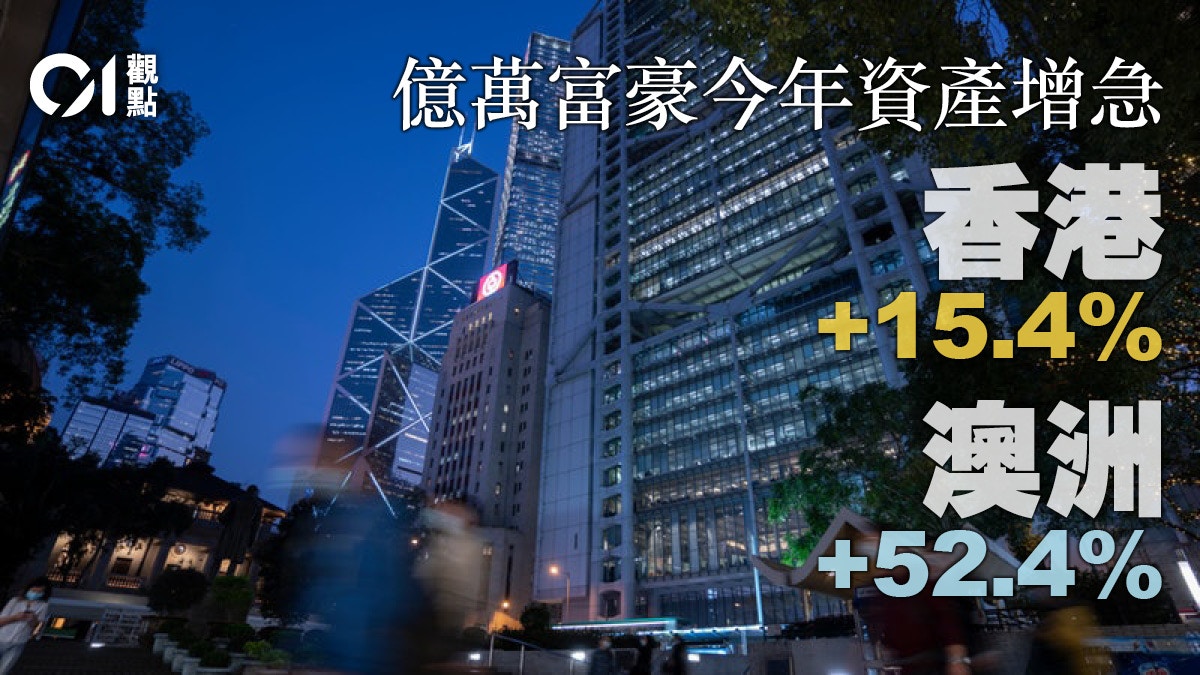01 view
Written by: Commentary Editing Room
2020-12-31 07:00
Last update date: 2020-12-31 07:00
According to Bloomberg's "Billionaire Index" statistics, during the pandemic, the wealth of billionaires in many countries and regions rose instead of falling, and the wealth of Australians increased by more than half.
In order to counter the economic downturn, governments and central banks have launched fiscal and monetary policies with a total amount of record highs, which has caused asset prices to run counter to the real economy and severely divorced the purchasing power of the people.
A social unrest triggered by the gap between the rich and the poor is probably quietly brewing.
When the global epidemic reached its first peak in March this year, the net worth of Australian billionaires recorded a decline, but soon rebounded from the trough.
As of December, the total assets of these billionaires were 52.4% higher than the same period last year.
Although the trend of the United States, the United Kingdom, Canada and Hong Kong is "relatively lagging", they still recorded increases of 27%, 23.6%, 19.3% and 15.4% respectively.
Monetary policy benefits the rich
This group of billionaires has become more and more courageous in the crisis, and they absolutely need to pay tribute to governments and central banks.
Since late February, governments of various countries have realized that the epidemic has hit the economy once in a century, and have launched an unprecedented rescue plan.
On the one hand, the government uses public money to introduce various unemployment relief and other financial assistance; on the other hand, the world’s major central banks also artificially lower interest rates by increasing the money supply, not only to prevent the credit chain from breaking, but also to stimulate investment and investment. Consumption drives the growth of total demand, thereby stabilizing or opening up more jobs.
It is not the first time that the international community has flooded the sky to save the economy, and its side effect is by no means simply inflation.
Theoretically, when the money supply increases and exceeds the growth of overall economic demand, inflation will follow, and supporters of monetary policy generally agree with the view of the economist Folimin that inflation is just "a ubiquitous monetary effect." "As long as it is maintained at an appropriate level, the side effects of inflation eroding the purchasing power of money can naturally be offset by economic growth.
But the reality is that most of the new liquidity not only failed to be introduced into the real economy due to insufficient demand in the real economy, but also used to chase a wide range of investment products in the financial market, becoming a tool for asset appreciation, and the enthusiasm of the financial market is not only It can be seen that in stocks and commodity futures, even Bitcoin has recently broken through historical highs.
Lessons from the financial tsunami come first
Although monetary policy can be regarded as a "necessary evil," the political risks it sown cannot be underestimated.
As early as the 2008 financial tsunami, many economists have pointed out that most of the newly added wealth in society has fallen into the top class that can ride the asset appreciation fast train, which in turn gave birth to the "1% vs.99%" theory of inequality. And an "Occupy Wall Street" movement that points to the disparity between the rich and the poor.
Although the social movement originated from people’s dissatisfaction with Washington’s use of public funds to rescue financial companies that have fallen into financial difficulties due to excessive leverage, without the accumulated economic, racial, gender, religious, and class differences over the years, and people’s miserable lives I believe that the anger on the street will not respond to each other.
In the past year or so, demonstrations and riots around the world have continued to show that the level of public distrust of the government has increased unabated. Therefore, the relationship between the two needs to be repaired and the government's function must keep pace with the times.
In the era of soaring asset prices, although high property prices will only directly affect the living environment and quality of the people, the increasingly heavy housing expenses will in turn make people reduce their expenditures on education, medical care, meals, transportation, etc. The quality is deteriorating.
We are now in an era of leaps and bounds in the material level. The function of the government has long been not only to ensure that famine does not occur, but to provide the people with adequate living conditions, including adequate housing, affordable medical care, Pension and education are the most important.
Throughout history, extreme political thoughts of the masses are often symbiosis of economic crises. Therefore, the only way to resolve this is that the government regards distributive justice and social rights as policy principles.
The economy continues to improve and citizens are homeless?
Hong Kong officials should carefully understand the Pope’s instructions
The average monthly salary of Hong Kong people is 40,000?
01 view
New Crown Pneumonia Quantitative Easing Disparity Between Rich and Poor 01 Viewpoint

